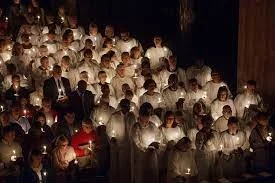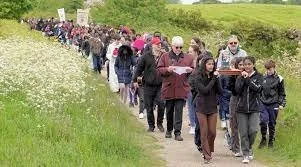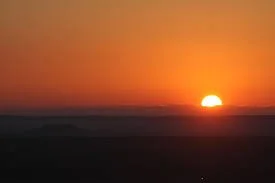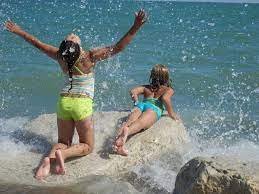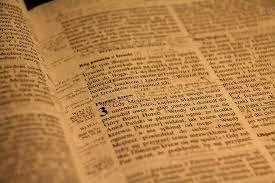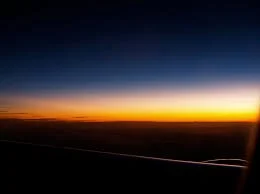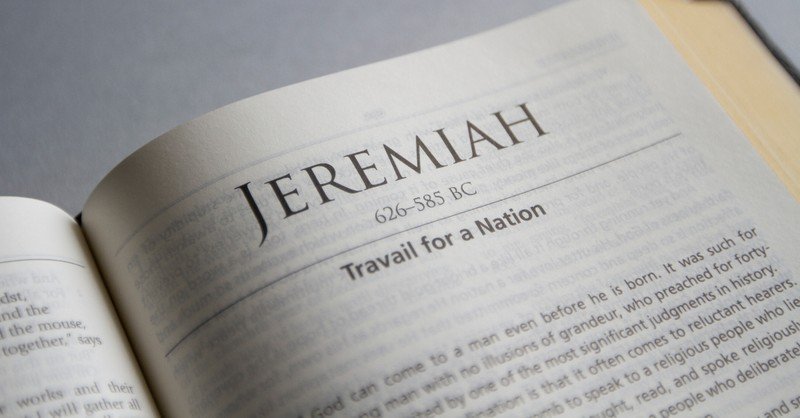Weaving Togeter the Beloved Community - Easter Vigils
“Lent is that time when we ask ourselves how we can draw closer to and deeper with God. I pray that these extra services along with the Easter Vigil will be meaningful for you.”
I so miss all the extra services, planning, and spirituality that went into Lent. My boyhood pastor was someone who did so much wonderful planning for these special services and made them something my whole family remembers. Being the brat I was, I had convinced one of my best friends that I was going to use one of those special services to talk about how goofy she thought I was. I was just enough of a brat that she thought that is exactly what I might do until I went another direction.
My favorite for Lent was the Easter Vigil. I would always pick two times, back to back, that would have me walk into the church chapel when there was still daylight and walk back out into my hometown when it was pitch black. Just that transformation made it feel holy and sacred and meaningful to me.
So as churches have done away with special services and Easter Vigils, I have mourned that quite a bit. An important part of my devotion and faith just ended up absent.
In most of the churches I have served, I have tried to keep the Easter Vigil alive. I’ve added playlists for a musical feel for each day from Maundy Thursday to Easter Day. I would lug my whole spirituality library into a dedicated space. I would provide votives and the ability to turn on or off lights for reading and meditation. I also put together a devotional handout where people could walk their way through a simple worship. Sometimes I would even find a finger labyrinth to include.
Lent is that time when we ask ourselves how we can draw closer to and deeper with God. I pray that these extra services along with the Easter Vigil will be meaningful for you.
We are offering potential times when you might attend to the Easter Vigil in 15-minute increments. Feel free to sign up for more than one slot and even visit other churches to participate. This year we will work with Riverview Park Christian Church, St. Joseph; Zion UCC, Baroda; and Pilgrim Congregational UCC, St. Joseph.
Genuine, Humble Fasting
We must always know our “humus”, our humility and connection to the earth, and our “imago Dei”, our divinity and connection to God. For this is who we are.
When affluence allows people to feast too frequently and independently of others, feasting loses much of its joy and integrity. It results in ill health and dulls our sensitivity to the needs of others.
- Joetta Handrich-Schlabach
Lent is to be a time of deep hunger for God and an ache for a fleeting glimpse of God’s face. But without spiritual practices or disciplines such as fasting, prayer, and almsgiving, we have no balance and our feasting is deadly.
For the Bible is clear about unacceptable feasting. The rich man, who goes unnamed, gorges himself while Lazarus, in a twist, is named as the person who dies at the rich man’s gate. The Bible is clear in its call for genuine, humble fasting. Not as a pious gesture or a grim act of will, but as an act of repentance, a seeking of God, a creating of extra space in our lives for spiritual reflection. Within Muslim spiritual practice, fasting is used to convey solidarity and remembrance of those who go without food on a daily basis. So to feast without fasting is to dismiss connection, forget our own mortality, and refuse to undergo an inward looking.
To quote Joetta Handrich-Schlabach:
“When affluence allows people to feast too frequently and independently of others, feasting loses much of its joy and integrity. It results in ill health and dulls our sensitivity to the needs of others. Reclaiming the feast may require learning to fast. Regularly abstaining from meat and other rich foods can be a spiritual act of walking with other people. Reserving for special events foods we might easily afford, but that are luxury items in the world economy, unites us with those who have less.”
In our Ash Wednesday Hebrew Scripture reading, the prophet Joel calls for the whole nation to abstain from those things which bring about violence, destruction, and domination. Can we even imagine the power of a whole nation strong enough, with humility and hope, that they would tear their hearts away from that which brings violence, destruction, and domination? Can we imagine a whole nation admitting that they might be wrong and there is another way? How could we, corporately, begin to fast in this way? To not gorge ourselves on the blood of others?
As we enter February, we also enter the liturgical season of Lent. Lent is a call to turn from gorging ourselves on the hearts of others. We fast. We remember who we are.
German scholar, Dorothee Soelle, believes that knowing we are all mystics, is the grounding for knowing we were also created in the image of God. She writes, “The greatest sin of humans is to forget that we are royal children. ‘Rabbi Bunam said to his disciples: 'Everyone must have two pockets, so that [they] can reach into the one or the other, according to [their] needs. In the right pocket are to be the words: “For my sake was the world created,” and in [their] left: “I am earth and ashes.”’”
As I shared above for Ash Wednesday, in the book of Genesis there are two creation stories. Each has a different view of what it means to be human. One was told when the people were proud and mighty and conquerors. That story said, “You were made out of the tillable soil, the dust of the ground, and to the dust you shall return.” Ashes to ashes, dust to dust. For that reason we apply the ash.
The other was told to the people when they were broken and despairing and conquered - living in Exile. That story said, “You were made in the image of God.” For that reason we apply the oil, a sign of God’s blessing and messianic choice.
We need to tell and hear both stories, for we must always know our “humus”, our humility and connection to the earth, and our “imago Dei”, our divinity and connection to God. For this is who we are.
✝
Weaving Together the Beloved Community - Pilgrimage
“Are we asked to do so to some geographical place? Or, … is there a ceremonial pilgrimage we need to take to reflect on the path to which God is calling us?”
Pilgrimage, as a spiritual practice, began to wane when the pilgrimages to the Holy Land came to an end. Muslim control over much of the Holy Land made travel to places like Jerusalem problematic. Christian cathedrals adjusted by designing labyrinths to reflect the pilgrimage people might make over long geographic distances.
As we begin Epiphany with the Magi making pilgrimage to Bethlehem, the Holy Family making pilgrimage to Egypt to escape persecution and then back home again to Nazareth, and Jesus beginning his public ministry with his baptism and pilgrimage into the wilderness, what pilgrimage are we called to in this day and age?
Are we asked to do so to some geographical place? Or, like those pilgrims who could not make it to the Holy Land, is there a ceremonial pilgrimage we need to take to reflect on the path to which God is calling us?
I have used labyrinths as holy space to symbolize beginnings and endings of church camp for children. Parents have remarked that they have never experienced their children so quiet and reflective. Children become aware that they are walking on holy and sacred space.
Our spirituality has been too often relegated to sitting quietly or reading and study without much activity. If your spirituality is anything like mine, however, I experience the Divine when I am in locomotion, moving. Most nights I take a short pilgrimage down to Lake Michigan for meditation. The walking is just as important a spiritual practice as my meditation.
What daily, regular, or planned pilgrimages do we continue to make or plan to make which bring meaning to our lives? If none, how do we begin? And what does our story tell us about the meaning of pilgrimage?
Planned Book Study, Jesus and John Wayne
Rev. Mulberry is planning a future book study of Kristin Kobes du Mez’s best-selling book, Jesus and John Wayne: How White Evangelicals Corrupted a Faith and Fractured a Nation. Kobes du Mez teaches at Calvin University in Grand Rapids and her book has become a source for reflection and discernment for many Christian churches. The strength of her book is in observing the history, telling it with interest, without making much commentary on it herself. If you are interested in the study, please let Rev. Mulberry know.
✝
The Journey Toward Dawn
“Many of the symbols we use for Advent are a reminder of God’s goodness when that goodness seems to be in question”
One of the reasons the Bible is important is that it tells us transcendent stories outside our own experience. As most of us have spent our whole lives in the United States, we have not spend one day living under foreign rule or occupation. That is in contrast to much of the context for Biblical writers. Many of them write about or during a time when the Jewish people live with another nation in charge.
When you are not in charge of your own land or livelihood, these circumstances shape how the Jewish people understand themselves. And one of the truths the Bible makes clear is that slavery, occupation, and oppression cannot be sugar-coated. Occupation is occupation is occupation. No matter how much their foreign rulers may try appear as benevolent fathers, the final result for people living in occupation is disease, desperation, and death.
My experiences in southern Mexico and among Native people in our own country helped me to understand the Bible much better than anything I might have learned on my own. That people living in occupation would have any right to hope for a better world can be foolish. Is hope a good thing? Or do we end up hoping only to be disappointed over and over again?
These were the questions of rural Jewish communities in Galilee as Rome taxed an already poor populace, leveraged debt to take land, and raped and pillaged any communities who might object. Where was God as God’s people suffered under the boot of Rome?
Throughout Advent, the Scriptures take us right into the heart of not only Roman occupation but also the Jewish response to the end of exile and occupation with the verses we have from Isaiah. Those verses from Isaiah are a reminder to Jews in Rome that God has been present throughout the very worst of their history as a people. God will not forget the people.
Many of the symbols we use for Advent are a reminder of God’s goodness when that goodness seems to be in question. The wreath is made with evergreen boughs, usually in a circle, as a reminder of God’s never-ending, everlasting, encircling love.
The liturgical colors of Advent began with purple and three purple, one pink or rose candle, and the white Christ candle. Some time ago, to distinguish Advent from Lent, many people began moving to blue to replace purple.
In talking with a Roman Catholic sister who is a liturgical artist, she pointed out the number of references to waking, sleeping, night, dawn, and daybreak in the Advent Scripture verses and hymns. She convinced me to move to candles that go from the deepest night to the colors one might see in the sky all at once as the sun sets or rises: a deep, velvety purple, a dark blue, a light or powder blue, and rose.
We begin at midnight, with no light in the sky, not even a star, and journey toward dawn
Vengence
“How can we, as people of faith, say that there is another way?”
At our clergy meeting at First Congregational Church in Coloma two weeks ago, we were asked to share what made us aware of the kingdom or kin-dom of God showing up in the world. I knew immediately what I would say.
At the U.S. Capitol over these last few weeks, thousands of Jews rallied for what is being called the biggest Jewish gathering in protest on behalf of the Palestinians. Two major Jewish peace groups, IfNotNow and Jewish Voices for Peace, came together to say that they would not use their grief to commit a genocide.
Jewish prophet, Naomi Klein, one of the prophets I regularly read and listen to, said,
We have a sacred responsibility to engage with our parents, our grandparents, our uncles, our brothers and sisters, and try to save their souls, to keep them from indulging in this quest for bloody vengeance. We are here because we will not let our fears of antisemitism be manipulated in this way, as cover for war crimes and colonial land grabs and to foreclose on the possibility of a political solution, which will only come with an end to occupation, with an end to apartheid, with true Palestinian freedom and self-determination. We will not use the fact that many of our parents and grandparents and great-grandparents were refugees from genocide to justify making hundreds of thousands or even millions of new Palestinian refugees.
These are not our leaders, not in the Knesset, with its so-called unity government, and not here in Congress, which reconvenes now in part in order to approve new money and new weapons to send to Israel for its genocidal attack on Palestinians.
On Friday, Jewish Voice for Peace and their allies shut down the main terminal of Grand Central Station during rush hour Friday in one of New York’s largest acts of civil disobedience in 20 years to demand a ceasefire in Gaza.
These are the Jewish people I have come to know and love. Rabbis in different cities I have ministered, Rockford, Illinois, and Billings, Montana, have been my best friends and colleagues. They have been my examples and leaders. Rabbi Sharon Brous, leader of the IKAR community in Los Angeles, has been one of my remote spiritual leaders. I have often said that the fundamental Jewish value of justice, rooted in their bone, as opposed to the Christian value of inclusion, feels more real and true to me.
As I write this on Monday, October 30th, the Israeli ground offensive into Gaza is about to start. The estimates of the dead in Palestine is now over 8,000 including over 3,400 children. All this since Hamas’s October 7 surprise attack on southern Israel, which killed more than 1,400 people.
The grief I feel at the loss of so many Israeli lives just gutted me - partly because I hate the loss of so many lives; partly because I knew that this would lead to so much more death.
Every day the Palestinian people experience occupation and death in that part of the world. Throughout decades, this has meant disproportionate death and dislocation for so many people and all of their peaceful efforts in protest have led to nothing but more death.
And there is one country that is directly responsible for propping up Israel not out of some grand value for life in that part of the world but for power and the control of resources. That country is us. We have allowed Israel to do this without any accountability asked for by almost all of the global south. We want the resources to keep flowing, particularly the oil.
How can we, as people of faith, say that there is another way? How can we say that even if Satan offers us all the kingdoms of the world, we will not bow down and worship his hate just to achieve power over others? When will we say that? Will we imitate Christ and turn Satan away? Or is the offer too seductive? Too much of a comfort?
Jewish people are protesting on behalf of the Palestinian people. Would that there might be Christian people who find their way to enter into this complex situation and seek peace and life for all of the people involved. Would that there might be.
Shalom,
Mike
✝
Weaving Together the Beloved Community
“I hope you will take one of these many opportunities to be a part of something bigger.”
I am thankful to the people from Pilgrim who made it over to my installation service at St. Paul’s UCC. Thank you! That meant the world to me.
Beyond the friends and members of Pilgrim, so many other people helped to make that a special day. I am especially thankful to Eleanor Joyce for stepping in to play the piano and to Rev. Calandra Nevenzel, Southwest Association Minister, who delivered the sermon, Carole Sternaman, Executive Director at Hope Resources, who delivered the charge to the congregation and Rev. Dr. Tere Krueger who delivered the charge to me as your teacher and pastor.
I am so grateful when the wider church shows up for things like this.
In the day-to-day work of doing local church, we can often forget the many ways we are connected to a wider web of relationships within the Michigan Conference. All through October we have an opportunity to join with the wider church in piecing together relationships, providing solidarity and inspiration for one another, and learning how we might be “church” together.
I hope you will take one of these many opportunities to be a part of something bigger. We too often only key into the wider church when we need something from them. This is a chance to show ourselves as good covenant partners in our walk together.
Sunday, October 1, World Communion Sunday,
Communion Sunday; Exodus 17:1-7
The Children of Israel have lived so long in the land of Egypt that they have appropriated what it means to be a slave deep into their bones. As a result, they must walk long in the wilderness to shed slavery to become a free people.
Tuesday, October 3, Blessing of the Pets, 5:30 p.m.,
Pilgrim Congregational UCC, St. Joseph
You are invited to a Blessing of the Animals service that will remember the pets/animals that are important to our lives. It is the Eve of the Feast Day for St. Francis of Assisi! Please make sure your beloved pet/animal is under control so that it does not harm others or cannot be harmed by others.
Sunday, October 8, Twenty-seventh Sunday in Ordinary Time, Exodus 20
The summary of the Ten Commandments is this: “Thou shalt not live like Egypt.” Many of the commandments were about not dispossessing the have-nots from what little they had in the world so that all could live on the land with the material bases of life.
Sunday, October 8, 7:00 p.m., Open Meditation,
Pilgrim Congregational UCC, St. Joseph
In the rotation of our meditation, this is our opportunity for total silence. It is a time for our soul to rest in the shadows. The great Celtic mystic, John O’Donohue, wrote that our souls love the shadows. If our souls do not receive enough shadow time, when we step forward in courage in the world our souls may not step forward with us. Join us for this service that lasts anywhere from 30 to 40 minutes. Give your soul time in the shadows.
Wednesday, October 11, 5:30-7:00 p.m., Lakeshore Gathering
our Imagination Group at Zion UCC in Baroda
Come to participate and learn what it might mean to bring our churches together to do bigger things! We had a great meeting last month at Tower Hill where we developed an initial focus around children and youth. What might it mean if we could harness our collective will to see God moving in our midst? Please let Rev. Mulberry know if you are interested as dinner will be served.
Sunday, October 15, Twenty-eighth Sunday in Ordinary Time, Exodus 32:1-14
Theologian Dan Clendenin writes, “Idols lure us with powerful illusions and misplaced hopes. They make seductive promises. These false gods come in all sizes and shapes. They promise much but deliver little. Our personal gods are so petty and pathetic that they would be laughable if they weren't so insidious and corrosive.” But national idols. National idols. “Personal idols are child's play compared to national idols,” Clendenin states. “[National idols] wreak far more violence upon humanity than our household gods.” They screw up our priorities and displace our devotion. What golden calf have we been worshipping?
Friday, October 20th, 5:00 p.m., Installation of Rev. Dr. Karen Georgia A. Thompson as the new General Minister and President of the United Church of Christ.
To register for the livestream of the event, please go here: https://www.ucc.org/gmp-installation/?inf_contact_key=cf73d63b06a436501962ca057f3a3e58b7af0999dac2af6212784c39e05d2aef.
This will be a historic moment in the life of our wider church!
Sunday, October 22, Twenty-ninth Sunday in Ordinary Time, Exodus 33:12-23
Many of our models for faith end up being people who are not very perfect, complain to God quite a bit about their predicament, and will not let their relationship with God go. They challenge God. They make God own up to stated values. So it is with Moses.
Sunday, October 22, Southwest Association Meeting, 2:00 p.m., Portage UCC will be hosting.
The Southwest Association Council announces the 2023 Southwest Association Fall Meeting to be held at 2:00 p.m. on Sunday, October 22, 2023. Please join us as we conduct the important and necessary business of the Association, including approving a budget and nominations for 2024. After the business portion of the meeting, Rev. Mak Kneebone will lead a discussion on the UCC open and affirming movement. The meeting will be held at: Portage UCC; 2731 West Milham Avenue, Portage, MI 49024
Alternatively, delegates, and visitors may attend online via Zoom:
https://us02web.zoom.us/j/88114482931?pwd=dUJPRmVTWklWOVc3QVd0U3duR0VIdz09
Meeting ID: 881 1448 2931; Passcode: 617498
The meeting will be paper-less. You must pre-register to receive the meeting reports, etc., which will be sent via email prior to the meeting. The agenda and nominations for 2024 are also attached.
Saturday, October 28, 9:00 a.m. - 3:00 p.m., Michigan Conference Annual Meeting, Plymouth UCC, Grand Rapids
Please participate in these wider events to help bring health and life and well-being to all of us within the Michigan Conference. To register for the Annual Meeting of the Michigan Conference, you can go register here:
http://events.r20.constantcontact.com/register/event?llr=vvgfsudab&oeidk=a07ejusbaky9d53cec4
Sunday, October 29, Reformation Sunday, Deuteronomy 34
One of the reasons I preach Bible so strongly is that Bible stories known deep down in our bones have been the things that have moved our country to a greater love and justice in the world. Do we know the Exodus story deep in our bones? Is it a story we regularly use as a discernment tool for the way we want the world to move?
✝
Hear No Evil, See No Evil, Speak No Evil - Not us!
“What we did over these last few months was powerful”
I hope you all pause just to recognize what happened with the three General Synod resolutions over these past months. This congregation took three issues that can be the utmost in controversial and found a way to talk about them. Sure there was unease and concern about how it would go.
We talked about digital access, gun violence, and abortion and came out on the other side a much more articulate and hardier congregation. While not all views we hear in the public sphere were represented in our discussions and dialogue, we heard incredible wisdom from across the congregation.
Too often, what I see in many congregations, is a system akin to the alcoholic family. We hear no evil, see no evil, pretend there is no evil even as pain and violence are found throughout our family system. We play nice to avoid the necessary things we have to do to be healthy.
What we did over these last few months was powerful. We found a way, a path. I’m hoping that way will continue to radiate out further and further to our community. What other congregation in southwest Michigan could have these kinds of discussions and come out the other side deeper and richer?
I am grateful to all of you for participating. I know sharing part of yourselves in speaking must have felt daunting at times. I also know how difficult it must have been to remain silent and give others a chance to speak.
What we did, however, is find a way to be God’s Beloved Community in both our speaking and listening, coming forward and giving way. As your pastor, it was powerful to see you all make it real.
Worship begins at 9:30 a.m.
Weaving Together the Beloved Community
How we can come together in action and advocacy to protect the Five Sisters?
This summer I have called two major meetings together.
The first meeting centers the Great Lakes to ask how we can come together in action and advocacy to protect the Five Sisters. The Great Lakes Creation Care Collaborative recognizes that poisons put into our land through agricultural practice, plastics disposed of into the Great Lakes every year (10,000 metric tons annually), and fossil fuel pipelines like Line 5 threaten to destroy our relatives.
Currently, we have registrants attending from the Minnesota Conference, Wisconsin Conference, Michigan Conference, Illinois Conference, Indiana-Kentucky Conference, and the Heartland (Ohio) Conference. What would it mean to have people of faith come together to protect our sisters with persistence? How could the church be the church in this day and age?
The other meeting is one I have put before the leadership of our church and is now being shared with leadership in the small, local churches within about 30 minutes driving distance of each other. All of these churches have either contemplated closing at one time or are struggling to make it with huge needed capital expenditures and decreased attendance and giving. Two of the churches are going from full-time pastorates to part-time. Most of these churches have buildings that lie dormant Monday through Saturday and have church grounds, like ours, that are somewhat large. It seems crazy for all of these churches to struggle like they are without thinking, “Is there another way?”
We all pretty much do the same thing on Sunday morning. What if we offered a diversity of worship options involving deep spirituality or music that might be something more than traditional church hymns? How is God moving in a new age?
I could get pretty depressed if my faith were in the way the world or the church currently run. But I think God is at work. And, as a person of faith, my task is always to try and trace where God might be leading in creativity and purpose. My hope is that these meetings will bring forward goodness, gifts, and power to give us all hope for another day.
Worship begins at 9:30 a.m.
Sunday, August 6, Eighteenth Sunday in Ordinary Time, Hiroshima Day of Remembrance, Communion Sunday;
Genesis 32:22-31
What does it mean that Jacob, the one who is the ancestor of the whole Jewish people, is re-named as Israel? On this day of solemn remembrance, how do we live a faith that knows struggle and wrestling to be indicative of our faith journey?
Sunday, August 13, Nineteenth Sunday in Ordinary Time, Matthew 14:22-33
Faith calls us to risk, to sometimes walk out into the chaos without all the answers. Sometimes, without guarantees, we are called to step out of what we know into the unknown. We know there are real dangers. We know that the way can be difficult. We know that we do not walk alone.
Sunday, August 20, Java Joe’s, Twentieth Sunday in Ordinary Time, Luke 10:30-37
General Synod Resolution, Denouncing the Dobbs Decision and Proclaiming Abortion as Health Care
In the last of our three dialog sermons, we talk about probably one of the most controversial subjects in our nation - abortion. How do we talk about such a controversial topic faithfully? As people of faith, how do we respond to such topics when there are no clear Scripture verses to guide us? That full resolution can be found
here: https://generalsynod.org/wp-content/uploads/2023/05/A.-Abortion-as-Healthcare.pdf
This resolution passed but not without much editing. You can find the final resolution here: https://generalsynod.org/wp-content/uploads/2023/07/Committee-01-Resolution-Abortion-as-Healthcare-FINAL.pdf
Sunday, August 27, Twenty-first Sunday in Ordinary Time, Matthew 15:21-28
When I was a missionary in southern Mexico, I would end up in conversations when the people I was speaking with didn’t want me to know particular contents of the back and forth. And so, they would speak in Tzotzil or Tzeltal, an indigenous Mayan language. Peppered into many of those conversations was always the word, Kashlan. Kashlan meant “outsider,” or “not one of us,” and, not surprisingly, I would know that I was being talked about and whether I would be accepted by the community. What does it mean to be Kashlan when it determines whether you deserve healing and life?
Meditation Service, Sunday, August 13,
Nineteenth Sunday in Ordinary Time, 7:00 p.m.,
Guided Meditation Service,
“A Steady Heart”
We continue our Meditation Service on the second Sunday of each month with a guided meditation from Jack Kornfield. Jack Kornfield is one of my favorite people to listen to in guided meditation. He is not all rainbows and butterflies but helps people get right with their self-talk and reminds us all of our place in community.
This meditation begins by talking about someone who witnessed the plight of several refugee boats. In a difficult situation, some of these boats overfilled and perilously struggling with the sea, had no leadership. Everyone on board expressed anxiety and fear. And why wouldn’t they? Their lives were in danger.
But there was one boat that made it to its destination. When people surmised why that was, they recognized someone on that rickety craft had a steady heart. It wasn’t that these people were unaware of the danger or how perilously close they were to losing their lives. It was that their anxiety and fear didn’t serve them.
On that boat that made it, at least one leader emerged who had a steady heart. Yes, they could have lost their lives. But the whole community on that boat survived because good leadership reminded them that a steady heart served them.
In a difficult time, Jack Kornfield invites us to a steady heart.
✝
Discussing Impossible Things
“While there are many troubling and evil forces we know mean to do us harm in the wider world, we also need to remember the communion of saints, the cloud of witnesses, those people and relatives who surround us with care, love, and nurture. Encircling prayer calls all of those good forces to surround and embrace us as we walk out into the world. Come to rest and feel emboldened by their presence.”
Gun Violence in America
Can we talk about it?
Once again, I am so grateful for all the ways this congregation is willing to join hands and work on our spiritual growth together. We have used ancient forms of worship and spiritual practice to grow our hearts and strengthen our capacity for God’s love. To date, we have regularly practiced lectio divina, breath prayer, meditation (open, guided, and tonglen), and, again this month, encircling prayer.
In June we began conversations about issues that have come before our national church and its national meeting, General Synod. We opened up a conversation about “the digital divide” and what we believed to be a faithful response to this General Synod resolution.
As I have shared, my great Pastoral Care professor, Dr. Peggy Way, a University of Michigan alum, always defined Christianity as “coming to the table to talk about the impossible things.”
Taking up a suggestion I heard from our last dialog sermon, we are going to discuss the next two resolutions on Java Joe's Sundays (the second Sundays of the month). The first resolution comes out of the Colorado Conference and is a model for how we engage the gun violence in our country. Much like our first discussion, I will provide some framework, some background, and some presenting questions.
I am asking that you all read the resolution so that you might be better informed and more prepared for our dialog. You can find the whole of the resolution here:
Affirming Guns to Gardens and Other Gun Violence Prevention Ministries
https://generalsynod.org/wp-content/uploads/2023/03/G.-Guns-to-Gardens.pdf
I believe by discussing the impossible things like gun violence, we strengthen our spiritual muscle for these discussions in the wider world. We become a people who can show ourselves to be hardy, resilient, and willing to engage multiple perspectives. We become, as Dr. Way might have said, more Christian.
Worship begins at 9:30 a.m.
Sunday, July 2, Thirteenth Sunday in Ordinary Time, Communion Sunday
Genesis 22:1-14, “Sacrificing our children” We read from one of the most disturbing Biblical stories. Is God really asking us to sacrifice our children to show our faith?
Sunday, July 9, Fourteenth Sunday in Ordinary Time,
Java Joe's
Discussing the General Synod Resolution, “Affirming Guns to Gardens and Other Gun Violence Prevention Ministries,” https://generalsynod.org/wp-content/uploads/2023/03/G.-Guns-to-Gardens.pdf
Sunday, July 16, Fifteenth Sunday in Ordinary Time
Romans 8:1-11, “Law and order or something deeper?”
What does the apostle Paul mean when he refers to the “flesh,” and the “Spirit?”
Sunday, July 23, Sixteenth Sunday in Ordinary Time
Genesis 28:10-19a, “How awesome is this place!”
Sunday, July 30, Seventeenth Sunday in Ordinary Time
Matthew 13:31-33, 44-52, “You don’t need much but you got to get in there.”
Meditation Service, Sunday, July 9, Tenth Sunday in Ordinary Time, 7:00 p.m., Encircling Prayer
While there are many troubling and evil forces we know mean to do us harm in the wider world, we also need to remember the communion of saints, the cloud of witnesses, those people and relatives who surround us with care, love, and nurture. Encircling prayer calls all of those good forces to surround and embrace us as we walk out into the world. Come to rest and feel emboldened by their presence.
Weaving Together the Beloved Community Summer Fun
“Summer is a great time to wind rhythms and practices of rest, celebration, pleasure, fun, and play into our calendars”
Biblical scholar, Richard A. Horsley, has said that early Christianity can be defined in two words or a single phrase: anti-imperial. That definition comes out of strong Jewish roots that began with liberation from Egypt and the restoration from Exile.
In those roots, we can find the most anti-imperial practice and way of being found in the Ten Commandments - given more mileage than any other commandment - Sabbath.
Sabbath is an intentional rhythm and practice that says we were not destined to work ourselves 24/7, to have no opportunity for rest, celebration, pleasure, fun, and play.
Books with those themes are flying off the shelves: Rest as Resistance, Pleasure Ethics, Sacred Rest. Clearly, people are feeling the heat of what it means to live in empire where our self-worth is driven by work.
Summer is a great time to wind rhythms and practices of rest, celebration, pleasure, fun, and play into our calendars. How will we be faithful? How will you be faithful? What is something you really enjoy doing that you could now make a part of your weekly calendar?
Maybe you love to sit and read? Or enjoy a good hike? You want to schedule an afternoon nap? You need to get out dancing? You love playing volleyball with friends? Playing bridge?
All of these are God’s want and wish for you. Safeguarding these is an important part of being faithful so that you forever know that God wants our collective joy. How do we create a whole environment that is conducive to rhythms and practices of rest, celebration, pleasure, fun, and play?
Weaving Together the Beloved Community
Lectio Divina - The practice of reading Scripture four times in different translations, to give us all a sense of the wide and varied ways Scripture might speak to us.
Meditation: “When I am right and healthy, I can breathe in the worst of things and put back out into the universe health and harmony“
Sunday, May 14
Sunday School Recognition Sunday,
Church Choir singing, Mother’s Day
Due to some scheduling conflicts, we are moving Java Joe’s worship back a week. We will be in the sanctuary on Sunday, May 14.
Sunday, May 21
Jammin’ with Java Joe’s in the narthex
Every month we have been practicing the ancient form of praying with the Scripture, lectio divina. What has been awesome for me is to feel the congregation becoming more and more comfortable with the silence. As a result, lectio divina feels richer and richer every time we do it. I hear what great theologians are in this congregation as you share your reflections.
That also makes me comfortable with sharing some more forms of lectio divina. I have a book on my shelf which shares the incredibly different variations people have used to provide a different feel, a movement of the Spirit.
For the next two months, May and June, we’ll practice lectio divina by reading the same translation all four times. I have printed out four different translations for people to read just to give us all a sense of the wide and varied ways Scripture might speak to us.
In reading the same translation, I’m then going to ask you to read it with me the third and fourth times. After reading it the first two times, you will have a word or phrase that calls to you or “shimmers” from the text. After meditating on that word or phrase and possibly sharing it, I’ll then ask you to read your word or phrase with me when I read it the third and fourth times.
What I believe that will do is provide a different way of hearing your word or phrase within the context of the whole Scripture verse. We will then return to the way we have been historically reading lectio divina through July and August.
In September and October, we are going to do a variation called visio divina which will have a famous piece of art depicting the Scripture verse or an icon. Within that art, we will ask ourselves what shimmers or calls to you.
We are asked to gaze at the entire picture. Notice the shapes, the colors, and the lighting. Notice the detail of both the foreground and background. Once you have visually canvased the artwork, note what has drawn your attention.
We invite this to unfold in our imagination and notice if it evokes memories, feelings, or other images. Maybe we even place ourselves in that story or image. What calls to you? Where do we find ourselves placed within it?
We then ask the second question, what is the invitation behind the story, images, memories, feelings that has unfolded for you? How is God calling to your life through this story or image? All of these are ways that people have worked to hear God speaking to themselves since ancient times. I look forward to walking through these experiences of the Divine with you.
General Synod Resolutions
We received a small response about which resolutions you wanted to dialog about being proposed for General Synod 34 in Indianapolis. I am listing the website where you can find the full text of the resolution. We will have copies of the full text of the resolution set out at the table in the narthex. Here were the three receiving the most votes:
Denouncing the Dobbs Decision and Proclaiming Abortion as Healthcare
https://generalsynod.org/wp-content/uploads/2023/03/A.-Abortion-as-Healthcare.pdf\
Closing the Digital Divide: Calling on the United Church of Christ to Seek Digital Justice and Inclusion
https://generalsynod.org/wp-content/uploads/2023/03/D.-Closing-the-Digital-Divide.pdf
Affirming Guns to Gardens and Other Gun Violence Prevention Ministries https://generalsynod.org/wp-content/uploads/2023/03/G.-Guns-to-Gardens.pdf\
General Synod: The national meeting of our church is in Indianapolis this year! Y’all come!
Rev. Mulberry wants to encourage everyone to go to the national meeting of the United Church of Christ, General Synod 34, in Indianapolis this summer from June 30 to July 4. Planning on going to General Synod in Indianapolis this summer? Registration is open! (https://www.ucc.org/general-synod-2023-online-registration-opens-jan-23/) Rev. Mulberry recommends the Single Day, for Synod in the City which usually happens on Saturday, or the Three Day to give one a feel of the scope of General Synod with great worship, music, workshops, entertainment, community, and spiritual learning and growth.
Youth (12-18 yrs old) $150.00
Youth (6-12 yrs old) $50.00
Volunteers $65.00
Single day $95.00
Three day $175.00
There is much to consider this year. We will be electing a new General Minister and President, voting on the reelection of Associate General Minister Karen Georgia Thompson and considering amendments to the UCC Bylaws that would change the frequency of General Synod from two years to three years. In addition, there are potentially 19 resolutions that will be up for review.
The event’s keynote speaker will be: The Rev. Nadia Bolz-Weber, Lutheran minister, best-selling author and the founding pastor of Denver’s House for All Sinners & Saints, will deliver the keynote address at Synod on Saturday, July 1.
Plus, among other presenters will be nationally known: Ibram X. Kendi and Bryan Stevenson, best-selling authors, speakers, and thinkers around racial justice.
Two people have already expressed interest! Please let Rev. Mulberry know if you are interested! He would love a whole busload of Pilgrims to go.
Meditation Service, Sunday, May 14,
Sixth Sunday of Easter, 7:00 p.m., Tonglen Meditation
Meditation
One of the most difficult community meditations I have done personally and in community is tonglen meditation, a meditation that strengthens compassion in the heart and the mind. It is difficult because it helps us take the negative or painful in and put back out into the universe light and love. For a Christian, it is kind of like eating a vegetable we know we need but not necessarily liking the taste.
We become a human kidney. We breath in the negative or even the evil and breathe back out light and goodness.
When I am right and healthy, I can breathe in the worst of things and put back out into the universe health and harmony.
Christ commands, “Love your enemies.” It is a reminder that we are to build spiritual muscle that does not put back out the evil or negative directed at us. We are not to be doormats. But we are to help weave an eco-system of compassion around us.
Come join us for the practice of tonglen meditation.
Change is Hard …
But, change can be beautiful
Sunday, April 23, 2023, worship at 9:30 a.m. begins
Change is hard. And I know this is not ideal for many people. I am grateful that some of you have been able to voice your concerns or displeasure with the time change but have also been able to find a way to re-think what Sunday morning might look like going forward.
I have heard of people scoping out favorite brunch places. I have heard people recognize that now the majority of their day will be free for relaxing, time with friends or family, or even the ability to get out and do something in the late morning. Just imagining how this might be good for you is a blessing to me. Thank you.
I do not want to lose anyone in this change. Know that my prayer is that both congregations may worship separately but that we might learn together, grow together, and serve God together.
Thanks again to all of you as we make this change.
Shalom,
Mike
General Synod: The national meeting of our church is in Indianapolis this year! Y’all come!
The event’s keynote speaker will be: The Rev. Nadia Bolz-Weber, Lutheran minister, best-selling author and the founding pastor of Denver’s House for All Sinners & Saints, will deliver the keynote address at Synod on Saturday, July 1.
.
Rev. Mulberry wants to encourage everyone to go to the national meeting of the United Church of Christ, General Synod 34, in Indianapolis this summer from June 30 to July 4. Planning on going to General Synod in Indianapolis this summer? Registration is open! (https://www.ucc.org/general-synod-2023-online-registration-opens-jan-23/) Rev. Mulberry recommends the Single Day, for Synod in the City which usually happens on Saturday, or the Three Day to give one a feel of the scope of General Synod with great worship, music, workshops, entertainment, community, and spiritual learning and growth.
Youth (12-18 yrs old) $150.00
Youth (6-12 yrs old) $50.00
Volunteers $65.00
Single day $95.00
Three day $175.00
There is much to consider this year. We will be electing a new General Minister and President, voting on the reelection of Associate General Minister Karen Georgia Thompson and considering amendments to the UCC Bylaws that would change the frequency of General Synod from two years to three years. In addition, there are potentially 19 resolutions that will be up for review.
The event’s keynote speaker will be: The Rev. Nadia Bolz-Weber, Lutheran minister, best-selling author and the founding pastor of Denver’s House for All Sinners & Saints, will deliver the keynote address at Synod on Saturday, July 1.
Plus, among other presenters will be nationally known: Ibram X. Kendi and Bryan Stevenson, best-selling authors, speakers, and thinkers around racial justice.
Please let Rev. Mulberry know if you are interested! He would love a whole busload of Pilgrims to go.
We continue our Meditation Service on the second Sunday of each month with Encircling Prayer. Encircling Prayer is a form of meditation that knows we have all kinds of negative messages, stories, and forces at work against us. Encircling Prayer calls all of the good in our world to us, to be mindful of them, to gather the good ancestors who are in the room with us so we know we are encircled and held.
Encircling Prayer comes from an ancient Celtic tradition of Caim Prayer. This is a simple Caim Prayer: Circle me Spirit. Keep protection near, and danger afar. Circle me Spirit. Keep light near, and the shadows afar. Circle me Spirit. Keep peace within. Keep evil out.
We will be naming with much more intention the circles of care and love that surround us every day so that we might walk knowing that we are held in love and compassion. Come join us. These services last anywhere between 30 and 40 minutes.
Lessons from Costa Rica: Watch Out for the Howler Monkeys!
I want to encourage an eco-system of boundaries so that all of have an opportunity to experience God’s joy.
I am grateful to the church for my vacation time when I might be able to get away to refresh, renew, and long for home all over again. We had great guides for our trip who gave us great advice for how to make our trip more enjoyable.
We were always being advised to bring rain gear and bug spray. Luckily, the rain came when we were safely tucked in our hotel rooms and the bugs never showed up in a big way. Tracy and I always had our raincoats and bug spray at the ready.
But there were other pieces of advice we did not do so well on. When we crossed a narrow suspension bridge, howler monkeys were climbing the top of the bridge eyeing us suspiciously. Our guide told us to keep our mouths closed because howler monkeys have been known to urinate or defecate to ward off visitors. I looked up at them in awe and wonder as we passed under—realizing quickly that I had my mouth wide open as my head tilted back. Thankfully, they did not see us as much of a threat.
As Tracy and I attempted snorkeling, we were warned about sea urchins on the rocks. Watch where you put your hands and feet for their sharp spines they use for protection. As I swallowed two rounds of salt water and struggled with breath, Tracy came up to help me. She inadvertently put her hands and feet on the rocks and was cut six or seven times. Until she received some lidocaine, she was in severe pain.
Even with these missteps, we enjoyed watching the sun set on the Pacific, moving through the rain forest to the sounds of howler monkeys, soaking in hot springs created by active volcanoes, and visiting Costa Rica’s National Museum. Throughout our time, our enjoyment was more full as we remembered the boundaries established by our guides.
That is a long way toward talking about the necessary boundary training I will again go through. Boundary training was a requisite for my ordination and I have had to go through it in every location where I served in the United Church of Christ. This year I will go through training provided by the Michigan Conference. Ordained clergy in the Michigan Conference are required to go through this training so that we all might keep our congregations safe, keep ourselves safe, and create an eco-system where safety, confidence, and joy might flourish.
We would all like to think that nobody in our congregation would dare harm someone more vulnerable. My experience and these trainings have taught me, however, that the potential for incredible harm exists in every congregation. One of my most difficult jobs in every pastorate has been to draw boundaries so that all might have an opportunity to experience joy. As I have been thanked for doing so, I have heard terrible stories of harm and abuse which sadden me but give me courage for the next time around.
I want to encourage an eco-system of boundaries so that all of have an opportunity to experience God’s joy.
Shalom,
Mike
What are the questions?
What are the right questions to unlock wisdom and strength that will allow us to discern God’s plan for us?
One of the continuing education opportunities I participated in recently was a chance to be trained as a clergy coach. We went through material, saw clergy coaching modeled, and practiced with our colleagues. I always liked one of the basic assumptions of clergy coaching: “The answer is within the person.”
Coaching was not about providing what were my answers but asking the right presenting questions so that the person being coached would rummage through their inner wisdom and will to know the answer for themselves. Listening well, asking the right questions, even offering silence are the job of the coach.
During the home potlucks this fall, I asked questions so that you all might learn about one another and think collectively about the future of the church. One of the things I’ve learned in coaching is that the right question sometimes needs to be asked over and over so that we begin to ruminate and reflect throughout the course of our days.
I believe in this congregation and the inner wisdom and strength that is found here. Using what I learned as a coach and in 30 years of ordained ministry, I am trying to discern what the right presenting questions are to tap into that collective wisdom and strength.
What do you think some of the right questions are? I’ll be talking about some basic questions where we might start in my New Year’s Day sermon.
I want to be precise about asking questions because I know I’ve asked past confirmation classes what they would like to do in the future and I get these wonderful, creative ideas shared with me. And then nobody participates in those future events or offerings.
Where do you think God is leading us? How are we to be faithful in this age? What if we assume that God has an incredible mission and ministry for us? What would that look like? How has God acted in the past that might tell us how God might act in the future?
I ask this because there are about seven United Church of Christ churches within about a 30-minute driving distance with each other who are anywhere from six to forty people in attendance every Sunday. Some are talking about closing. Others are talking about turning their church building into a museum. How might we spark imagination to talk about how all those churches might come together to do something fabulous and wonderful? What if we joined together in mission? What if we put forward all kinds of different worship opportunities and styles?
What are the right questions? And what is God leading us to do?
Meditation Service, Sunday, January 8, 7:00 p.m.,
Tonglen Meditation
One of the most difficult community meditations I have done personally and in community is tonglen meditation, a meditation that strengthens compassion in the heart and the mind. It is difficult because it helps us take the negative or painful in and put back out into the universe light and love. For a Christian, it is kind of like eating a vegetable we know we need but not necessarily liking the taste.
We become a human kidney. We breath in the negative or even the evil and breathe back out light and goodness.
When I am right and healthy, I can breathe in the worst of things and put back out into the universe health and harmony.
Christ commands, “Love your enemies.” It is a reminder that we are to build spiritual muscle that does not put back out the evil or negative directed at us. We are not to be doormats. But we are to help weave an eco-system of compassion around us.
Come join us for the practice of tonglen meditation.
✝
Advent begins: a new dawn
The Jesus the gospel writers center is an answer to the deepest of night. He points to the community forming around him and says, “This is God’s idea of rule, how God would distribute bread and fish, how God would want for our mutual healing, how God would make sense of the madness. And God would want us to partner with us in piecing the world back together again.”
I remember being in the presence of a Roman Catholic liturgical artist in St. Louis, Missouri, who made the most beautiful paraments, vestments, and stoles for churches, priests, and pastors. She clearly thought outside the box but also was deeply rooted in an ancient tradition. So I asked her, “If you had a dream for a church or a church leader to do something you’ve dreamed about doing, what would it be?” She sparkled at the question—like she had been waiting for it.
She began to explain to me how she believed Advent was one of our most meaningful liturgical seasons but how it was one of the least explored. She wanted to do something with the color because she had never heard a good explanation for why purple or blue (Blue was just coming into vogue as an Advent color to distinguish it from Lent.) were used for Advent candles.
Deep in the Scriptural and hymnody tradition of Advent, she explained, was the understanding that we were moving to a dawn we could not even see or imagine. So what her dream liturgical project would be had to do with progressive vestments that would begin with the colors of the deepest night and then adding colors each Sunday that would lead to the bright colors of the dawn on Christmas Eve/Christmas Day. She was giddy in explaining it to me.
That joyous explanation transferred to me. She was right. I could not find much of an explanation for why candles were purple or blue. Unlike many liturgical seasons, Advent did not have lengthy explanation for its liturgical tradition. And, as I’m sure you know by my children’s sermons, I think our liturgical tradition, its colors and meaning, is a powerful, countercultural discernment practice and tool for our lives.
As I began to notice the colors in the late autumn dawn or evening sky, I began to see what she was telling me. The spiritual cues were there. In the deepest part of the night one could see a dark purple, then there was another layer of deep or dark blue, then a Columbia or powder blue, and, finally, a rose to signal that the heavens were about to change. In each church I served, I changed the colors of the Advent candles to reflect those four colors. And as we lit each candle, I told the children to see God’s hand at work in the morning or night sky.
The journey with Advent begins with the deepest night, when there is not even a star in the sky. The Scriptural texts we have are filled with terror and trauma and fear. We are called to be faithful even when it is night, even when we cannot imagine a different world.
We live in a world where many have called out the hypocrisy at all levels of our highest institutions. Indeed, it can feel like everything is beginning to unravel as we see the truth that the great makers and builders did not always have the best intent. Authentic faith has historically done this forever calling for reformation and transformation in our personal, communal, national, and earthly lives together.
Others point out that hypocrisy and enjoy watching the world burn. Still others believe that that hypocrisy, feeling like they’ve been sold out or lied to for the first time, gives them the right to act with total freedom and a lack of concern for their neighbors and for God’s good earth. I know I struggle with that unraveling and my mental health loses grip on what is possible or what we can do. Sheez, Mike, you are clergy. Get it together. But I sometimes can’t. I feel like I am withering.
The gospels were written at a time, just after Jesus, that was full of trauma, violence, and fear. It was a time of night. Everything was unraveling. Can we imagine a dawn? Can we even think of it? The Jesus the gospel writers center is an answer to the deepest of night. He points to the community forming around him and says, “This is God’s idea of rule, how God would distribute bread and fish, how God would want for our mutual healing, how God would make sense of the madness. And God would want us to partner with us in piecing the world back together again.”
It is night. The world may be unraveling. As people of faith, we are called to piece the world back together again. As we do so with God, the dawn comes. God’s hand is at work.
Shalom,
Mike
Gratitude, Potlucks & Reflection
How is God Leading us?
Thanks to so many people for your cards and gifts in honor of pastor appreciation Sunday. I am blessed to serve this congregation. It was a double blessing to receive such well-wishes and goodness.
Thanks also for the vacation time. Tracy and I were able to re-connect with our moms by taking them on a trip up to the Upper Peninsula and the drive up to Wa Wa in Canada. While the colors were grand, we ended up leaving the week of snow and what felt like the beginning of winter. The week before temps had been in the 60s and 70s. The week after temps were in the 60s and 70s. We still had such meaningful time. Tracy and I especially enjoyed hiking the Nokomis Trail. Our moms will forever remember their time at Tim Horton’s!
Rhythms of sabbath, rest, and detachment are so important for all of our well-being. I try to wind the practice into my day through meditation, night time walks, and spending intentional time with family and friends.
I look forward to our time together as a church through this end of Ordinary Time into Advent and Christmas.
Home Potlucks
I heard great reports out of the church potlucks. Thanks to all who attended! I pray that the potlucks were a way we might all “do church” together, remembering God’s leading, and binding us to one another. That is the literal meaning of religion - “to re-bind.” Just a reminder that as we enter these colder months to receive your vaccine boosters and to get your flu shots. We want everyone safe, healthy, and protected as we enter this season where we nest a little longer, contemplate God’s goodness, and huddle closer for warmth and reflection.
Reflections back from Church Potlucks
Potluck hosted by Sheila Mayne and Carol Conklin
Strengths of Pilgrim Congregational UCC
· Community: friendly, and it is more than just worship
· Pastor: great sense of fashion; liked belonging; great sense of humor; all feel like equals; is fitting in.
How would outside describe?
· Role play between Pemberley and Amelia; intriguing and welcoming
Future
· Mr. Mulberry
· Same people, safe place
· More kids in Sunday School
· Always be accepting as a community
· Doing more things in the community
· Love Java Joe.
How is God leading us?
· Be happy and strong community
· Leading into a path of happiness and joy
· Girls/women are embraced
· Enjoy different points of view and respect at the Java Joe worship service.
Your role in Pilgrim’s future?
· Share with the community the great things at Pilgrim.
· If the world were more like Pilgrim is on a Sunday, we would be in a better place.
What dream of God do you see becoming possible?
· To feel included, all in this together—bring more inclusivity on a large scale.
Potluck hosted by Terry and Don Kretchman
Strengths:
· Caring
· Non-judgmental
· Acceptance
· Very social community
· Giving (generous!) to the community
How would an outsider describe Pilgrim?
· Warm
· Friendly
· Diverse
· Senior congregation
Future?
· Only possible if we continue to have folks walk through the door
· Need to show universal love to all
Fall Brings Excitement and Action!
“Wow! Power-packed!”
This autumn brings so much life and vitality into the life of our church! The liturgical season of Ordinary Time begins to take on ever-greater meaning as we learn and grow together.
We will share in the home potluck meals. Please sign up for one of the meals as the hosts begin providing dates. This is a great time for us to get to know one another and develop consensus on where we see God leading this blessed church.
We will have some different worship opportunities available to us this autumn. Once a month, on the second Sunday of the month, we will have a service of Compline, of silent meditation and rest at 7:00 p.m. on the Second Sunday of the month. Please bring a pillar candle you are willing to light to begin the service and leave behind for future services. This month we will begin with open, silent meditation on Sunday, September 11. Next month, October 8th, we will share in a guided meditation. These worship services will last between a half-hour and forty minutes.
On Tuesday, October 4th, at 3:30 p.m., we will have a Blessing of the Animals service that will remember the pets/animals that are important to our lives. It is the Feast Day for St. Francis of Assisi! I promise to show up this time! Please make sure your beloved pet/animal is under control so that it does not harm others or cannot be harmed by others.
Finally, we will begin Bible 201, the study of the major Hebrew Scripture stories and learn how they inform our faith and continue to inform our faith. We will begin Thursday, September 15th, at 3:30 p.m. for five Thursdays and then finish on the first Thursday in November, November 3rd.
Wow! Power packed! I also want to call your attention to a great event being hosted by the League of Women Voters at our church. On Friday, September 16, The League of Women Voters will be hosting a Climate Change Town Hall. What other congregation could possibly host such a great community event? Doors open at 5:00 p.m.! Be there or be square.
I will be installed as teacher and pastor of this blessed church on Sunday, September 18th, at 4:00 p.m. It will be a great day as we continue this mutual ministry together.
Telling Our Stories: Blessed be the tie that binds
We have six homes who are going to host for our home potluck dinners! Please look for the sign-ups in the church narthex as those hosts choose dates that work for them. We ask you also to sign-up for a main dish, a salad, a vegetable, or a dessert as we come together and share a little of who we are, learn about others, bless the tie that binds us with one another.
Worship
Sunday, September 4th, 10:30 a.m., Twenty-third Sunday in Ordinary Time
A hymn sing with egg casseroles! Good food and good music are going to be part of our worship experience on the first Sunday in September.
Sunday, September 11, 10:30 a.m., Twenty-fourth Sunday in Ordinary Time
Chillin’ at Java Joes! We worship in the narthex with some of our favorite beverages! We once again practice Julian of Norwich’s Body Prayer and lectio divina as we discern what it means that those in power do not want to hear the truth.
Sunday, September 11, 7:00 p.m. Meditation Service
Join us for a service of silent meditation and a welcoming of the night. Please bring a pillar candle you are willing to leave at the church as your own so that you may light it and remember what a gift the stillness, the darkness, the quiet is as we move through meditation.
Sunday, September 18, 10:30 a.m., Re-covenanting Sunday
Jeremiah asks for a repentance, a turning around. We approach the High, Holy Days in the Jewish liturgical calendar which remind us of our own mortality and always our opportunity to begin again. In Benedictine spirituality, we are invited to have the heart of a beginner, to always know we can begin again.
Sunday, September 18, 4:00 p.m., Installation Service
The Southwest Association of the Michigan Conference in covenant with Pilgrim Congregational United Church of Christ installs Rev. Mike Mulberry as teacher and pastor of the church.
Sunday, September 25, 10:30 a.m., Twenty-sixth Sunday in Ordinary Time
Sunday School begins with children! Loretta Gibby will once again be leading Sunday School for our children. After the Children’s Sermon, children are invited back to the narthex to continue to learn, play, and work on crafts Loretta has provided.
What is your mission statement? What is our mission statement? How do we continue to walk with God even when the path is hidden or difficult?
Sunday, October 2, 10:30 a.m., World Communion Sunday
Join Christians around the world in this celebration of our common identity as people who learn about the Divine as we share across the table.
Sunday, October 4, 3:30 p.m., Blessing of the Animals, Feast Day for St. Francis of Assisi
Bring your pets or the animals you love to the church for this time when we recognize what a holy and sacred gift they are to our lives and the beautiful relationship we have with them. Please make sure to have your pet/animal in control so they do not harm other pets/animals or won’t be harmed by other pets/animals who might escape the control of another. We want everyone safe and protected. Rev. Mike promises to be there this time!
Bible Study: Beginning Thursday, September 15th, 3:30 p.m., for 4 weeks with two sessions on Thursday, November 3rd and November 10th.
Bible 201: The Hebrew Scripture Stories
Hebrew Scripture (The Old Testament) is far larger than The New Testament and has this incredible stories of humor, apocalypse, song, prayer, and a re-counting of how God has been present for the Jewish people. At the same time, when we study the Bible critically, we have to decide what we will leave behind and what we will take forward with us. This has been the spiritual task throughout the centuries.
Please bring a study Bible with you. Rev. Mike recommends one of two: The New Oxford Annotated Study Bible (New Revised Standard Updated) with Apocrypha or The HarperCollins Study Bible with Apocrypha (New Revised Standard Updated). Having the Apocrypha will be important as we move into Bible 202. We will continue with our critical look at some of the larger stories we find in Scripture.
Please let Rev. Mulberry know if you are interested (mmulberry@gmail.com)
Learn From Ancient History
“What might this young prophet, an author of so much of our tradition, tell us about our current time?”
As another variant of the Co-Vid virus ramps and a monkeypox outbreak is declared a global health emergency by the World Health Organization, we have every right to feel overwhelmed. When will this end? Didn’t all of our quarantining, masking, and social distancing work? Will we have to go back to these safety protocols?
It is impossible to know where we go from here. I am confident that Church Council will be actively looking at data and advice from health experts to make the best decisions for our collective health.
I am also confident that amidst such change and frustration, God is actively at work—in ways that we could not have possibly imagined. God’s love is the most creative force in the universe.
In the midst of so much change, it is important for us to ask what we may be learning, how we might reflect God’s love by how we move creatively, and how what it means to be church might be different in this strange time.
My hope is that both Co-Vid and monkeypox will be waning by this fall such that we might do what I am calling “reflection dinners” at peoples’ homes. I want us to plan for fun, to learn about one another, to re-weave and darn some of the intimacy we may have lost during Co-Vid. I want us all to begin asking, “What are my hopes for Pilgrim Congregational over the next five years? What would it look like? Taste like? Smell like? Feel like?”
To discern how we might figure out that direction takes many conversations which might spark our hope, spawn creativity, and remind us that God is moving among us. But if we can’t do that, we’ll figure out a way. Because God is moving among us. I see the signs. And we’ll have fun doing it.
Jeremiah Preaching Series
Starting in mid-August, the Hebrew Scripture readings pick up on the book and prophet of Jeremiah. Hebrew Scripture scholar, Richard Elliott Friedman, believes that Jeremiah is responsible for collecting, writing, and organizing much of Hebrew Scripture—probably many of the Psalms.
It makes sense. Jeremiah was a young priest from Anatoth so he would have the literacy, the time, and the position to both engage the tradition and reflect upon it. He also would have had a compelling reason. Literacy was not common in the ancient world. Much of the tradition was carried orally.
So why would someone feel compelled to write down a tradition that was being carried orally? Threat. The Babylonian Empire was descending on Jerusalem early on in Jeremiah’s story. Jeremiah sees a religious and political elite grinding the people down with their excess, their injustice, and their violence. He tried to warn the rulers of the inevitable consequences to their actions.
When the rulers could see Babylonia at their gates, they repented of their injustice and returned to their covenant tradition. When Babylonia backed away, Judah’s ruling and religious elite returned to their evil ways. When I write evil, I mean using debt as leverage to harm and accumulate wealth, working false measurements to cheat the poor, manipulating the justice system to trample the oppressed, and making lying a regular spiritual practice.
Jeremiah rails against his own people, his own nation. He is jailed, thrown down a well, and called unpatriotic.
What might this young prophet, an author of so much of our tradition, tell us about our current time?
Weaving Together the Beloved Community
Happy Pride Month
“… something magical happened.”
At our most recent Community Celebration service, something magical happened. These are rare moments in ministry when years of spiritual work are woven together with a prepared gateway or structure which allows God’s Spirit to whip around the room in powerful ways. The worship service asked for reflection, during Pride Month, on how the LGBTQ+ community has lifted us or provided Divine gifts.
Though these moments are rare and cannot be forced, I think it is important to reflect on the elements that were present so that we continue to open portals for the possibility of God’s Spirit to flit and float among us. And let me say that sometimes that is already happening imperceptibly and unbeknownst to us. Sometimes what feels like a slog can be the most meaningful and powerful work of a faith community.
I would love if you all shared elements you experienced as present on that Wednesday night in June so that we can provide the intention for them in the future.
Here is what I saw and experienced.
People spoke out of their vulnerability and their courage. We had a diverse intersection of voices that spoke of their historical slogs and pain to arrive at this moment. I saw people speaking not necessarily out of present struggles but about historical struggles that brought a bittersweet mixture of honest pain and joy. Each one of those voices spoke with humility, allowing for other voices to join the chorus. While many people spoke, I saw manifestations from family members and congregational members who wanted the person speaking to know that they were loved and we were grateful for their courage.
Music was a gateway. Diane and Lisa provided beautiful and diverse music (pop, country, disco, Latin American folk) that went to God’s love for our diversity and our identity as Beloved Children of God. I heard them waxing up our courage and giving permission for the moment to be transformative.
We had a combination of freedom and self-awareness that led to powerful reflection. Nobody told anyone else they were “wrong,” but all of the people who spoke seemed to be aware they were not alone and that they could speak freely and responsibly. We heard from incredibly diverse experiences reflecting back on something that was both something they were in but recognizing that something bigger was afoot.
Even more so, after the experience was over, people continued to speak about the personal experience of the worship service a powerful and transformative.
I thought the worship service was transformative for our congregation.
But it had been building. Our congregation had been inviting, welcoming, teaching, offering care, celebrating, having fun, and experiencing all of that being returned. Years of love and struggle found their culmination in that moment.
The work continues. And I am so inspired to continue that work in a congregation where God’s Spirit is being made manifest in transformative ways.

